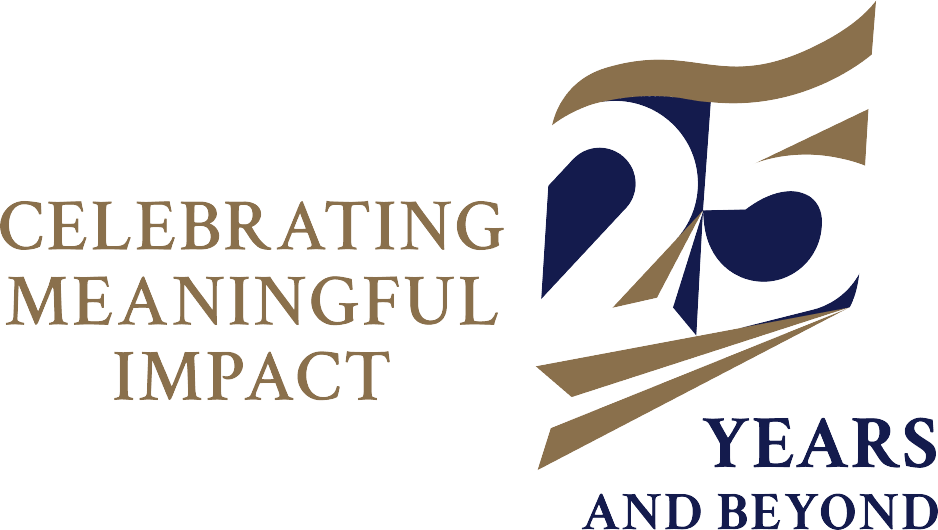Our Research
White Paper for Universities on Navigating Artificial Intelligence Innovation Ecosystems in the area of AI Governance
Published Date: 08 Sep 2025
Author(s): Raphaël Weuts, Robert Kerwin Billones, Johannes Bleher, Pawel PUJSZO, Rozanne Tuesday FLORES, Zsolt Almási, Xuanyang Guo, Jerrold Soh
The rapid transformation of industries and societies due to Artificial Intelligence (AI) calls for the establishment of robust AI guiding principles…
The Cambridge Handbook of Generative AI and the Law
Published Date: 30 Aug 2025
Author(s): Jason Grant Allen, Jane Loo
This handbook offers an important exploration of generative AI and its legal and regulatory implications from interdisciplinary perspectives. The…
Silicon Statecraft Alignment: Taiwan's Strategic Bet on US-Led Export Controls
Published Date: 17 Jul 2025
Author(s): Ching-Fu Lin and Han-Wei Liu
Taiwan’s export control regime is becoming more closely aligned with U.S. policy, re-calibrating its role in an emerging U.S.-anchored system of…
The Case for a Taiwan-US Semiconductor Agreement
Published Date: 27 Jun 2025
Author(s): Ching-Fu Lin, Han-Wei Liu
[...]moves transcend their face value, as they raise fundamental challenges to local regulatory frameworks concerning foreign investment reviews,…
Techno-Geopolitics and Semi-conductor Chokepoints: Beyond the US-China WTO Dispute
Published Date: 24 Jun 2025
Author(s): Han-Wei Liu, Ching-Fu Lin
Much ink has been spilled on the US-China tech and trade war, particularly the role of US export controls in containing China and preserving America'…
Understanding Disputes Over Digitalization: A Perspective of Cross-Border Central Bank Digital Currencies
Published Date: 27 May 2025
Author(s): Heng Wang
In a rapidly digitalizing world, complex disputes would arise due to the technological, regulatory and other complexities. Public and private…
Artificial Intelligence in the Regulatory Wonderland
Published Date: 06 May 2025
Author(s): Jerrold Soh, Larissa Lim, Zee Kin Yeong
This Chapter conducts a theoretical and practical examination of existing AI governance and regulatory models. With “regulation” we include not only…
The Practice of Law
Published Date: 01 May 2025
Author(s): Jerrold Tsin Howe SOH, Rajesh SREENIVASAN, Dorcas QUEK ANDERSON, Eunice CHUA, How Khang LIM
Negotiating with GPT-4: Digital doormat or skilful counterpart?
Published Date: 28 Feb 2025
Author(s): Dorcas QUEK ANDERSON
Large language models (LLMs) such as GPT-4 have been creatively harnessed in the conflict resolution arena as dialogue agents interacting with humans…
Report of the Online Harms Symposium: Exploring New Solutions and Legal Remedies for a Safer Online World
Published Date: 17 Feb 2025
Author(s): Professor Yip Man, Associate Dean (Faculty Matters & Research), Yong Pung How School of Law, Singapore Management University
YPHSL CDL was delighted to partner with the Ministry of Law to co-organise the Online Harms Symposium, which was held over three days from 25 to 27…
Governing Intelligence: Singapore’s Evolving AI Governance Framework
Published Date: 15 Jan 2025
Author(s): Jason G Allen, Jane Loo, Jose Luna
This paper provides an outline analysis of the evolving governance framework for Artificial Intelligence (AI) in Singapore. Across the Singapore…
Mapping Generative AI Regulation in Finance and Bridging Regulatory Gaps
Published Date: 14 Nov 2024
Generative AI in Finance: Risks and Potential Solutions
Published Date: 09 Nov 2024
Can federated learning solve AI’s data privacy problem?: A legal analysis
Published Date: 01 Oct 2024
Author(s): Warren B. CHIK, Florian GAMPER
Federated learning (FL) is a method of training AI systems on different datasets without sharing data. The promise of FL is to enable AI systems to…
From CPTPP to U.S.-Taiwan Initiative on 21st-Century Trade: The Evolution of Good Regulatory Practices and its Implications for Taiwan
Published Date: 24 Sep 2024
Author(s): Han-Wei Liu
This paper examines the evolution and implications of Good Regulatory Practices (GRP)otherwise known as "regulatory coherence" in international trade…
Duties for Datasets
Published Date: 18 Sep 2024
Author(s): Damian Clifford, Jeannie Paterson, Kwan Ho Lau
Machine learning (ML) systems are increasingly being deployed in contexts, such as law, medicine and finance, where system errors present serious and…
The Treatment of Digital Assets in Insolvency
Published Date: 25 Aug 2024
Remolina, Nydia and Gurrea-Martínez, Aurelio and Liu, Daniel, The Treatment of Digital Assets in Insolvency (August 04, 2024). Oxford Handbook of…
Legal governance of artificial intelligence in healthcare devices and services in Singapore
Published Date: 01 Jul 2024
Author(s): Warren B. CHIK, Haran SUGUMARAN
The use of artificial intelligence (AI) in healthcare applies across a spectrum of goods and services that support the industry. The main benefits of…
Generative artificial intelligence: The protection of personal data and countering false narratives about the person
Published Date: 01 Jul 2024
Author(s): Warren B. CHIK
Generative artificial intelligence (“Gen AI”) has rapidly become ubiquitous on online platform services, from chatbots and virtual assistants to…
AI Characterisations and their Legal Implications
Published Date: 20 Jun 2024
Author(s): Jerrold Soh
This Chapter examines the difficult legal characterisation problems that artificially-intelligent (AI) systems raise and explores how different…
AI at the Bench: Legal and Ethical Challenges of Informing - or Misinforming - Judicial Decision-Making Through Generative AI
Published Date: 16 Jun 2024
Remolina, Nydia and Socol de la Osa, David, AI at the Bench: Legal and Ethical Challenges of Informing - or Misinforming - Judicial Decision-Making…
The spread of synthetic media on X
Published Date: 02 Jun 2024
Corsi, G., Marino, B., & Wong, W. (2024). The spread of synthetic media on X. Harvard Kennedy School (HKS) Misinformation Review. https://…
The Transatlantic Divide: Intermediary Liability, Free Expression, and the Limits of Trade Harmonization
Published Date: 20 May 2024
Author(s): Han-Wei Liu
Amid escalating apprehensions surrounding content regulation, the USA has discreetly integrated provisions reminiscent of its Communications Decency…
NLP in the Legal World
Published Date: 11 Apr 2024
Author(s): Jerrold Soh
This talk situates the rising field of NLLP in the context of legal scholarship and emerging trends in legal AI practice and regulation. It centrally…

